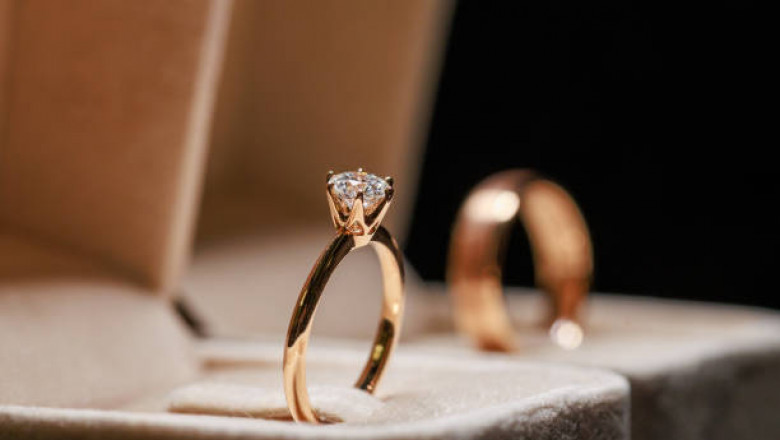views
How Can You Tell if an Emerald Engagement Ring Is Ethically Sourced?
The demand for ethically sourced gemstones has grown significantly in recent years, and couples looking for emerald engagement rings often want to ensure their ring aligns with ethical and sustainable practices. But how can you tell if an emerald engagement ring is ethically sourced? Understanding the origins of emeralds, mining practices, and certifications can help you make an informed decision.
What Does Ethical Sourcing Mean for Emeralds?
Ethical sourcing ensures that emeralds are mined, cut, and sold in ways that do not exploit workers, damage the environment, or fund conflict. Ethical sourcing also involves fair wages, safe working conditions, and minimal ecological impact.
When purchasing emerald engagement rings, it is important to research where the emeralds come from and how they were obtained. Some key factors that define ethical sourcing include:
-
Fair labor practices: Ensuring workers are treated and compensated fairly.
-
Environmentally responsible mining: Reducing deforestation, water pollution, and land degradation.
-
Conflict-free gemstones: Ensuring that emeralds do not fund armed conflicts or illegal activities.
-
Transparency in the supply chain: Being able to trace the gemstone back to its source.
Research the Country of Origin
The country of origin plays a significant role in determining whether an emerald is ethically sourced. Some countries have stricter environmental and labor laws, while others may have issues with unethical mining practices.
Ethically Responsible Sources:
-
Colombia: Known for producing some of the world’s finest emeralds, Colombia has reputable mines that follow ethical labor and environmental standards.
-
Zambia: Zambian emeralds are often sourced from mines that adhere to sustainable practices and offer fair wages to workers.
-
Brazil: Some Brazilian mines follow ethical mining practices with a focus on environmental conservation.
High-Risk Regions:
-
Afghanistan and Madagascar: Some mines in these areas have been linked to unsafe working conditions and environmental destruction.
-
Conflict Zones: If a country has ongoing conflicts, there is a higher risk of emeralds being used to finance illegal activities.
When purchasing emerald engagement rings, ask the jeweler about the gemstone’s country of origin and whether it was sourced from an ethical mine.
Look for Certifications and Ethical Labels
Several organizations certify ethically sourced gemstones. When buying an emerald engagement ring, check for the following certifications:
-
Fairmined Certification: Ensures that the emerald was mined under fair labor conditions with minimal environmental impact.
-
Fair Trade Gems: Guarantees that miners receive fair wages and work in safe environments.
-
Responsible Jewellery Council (RJC) Certification: Verifies that a jewelry company follows ethical sourcing and sustainability standards.
-
Gemological Institute of America (GIA) or American Gem Trade Association (AGTA): While these do not guarantee ethical sourcing, they provide transparency on the quality and authenticity of the emerald.
Always ask your jeweler for documentation or proof of ethical sourcing when considering emerald engagement rings.
Choose Reputable Jewelers and Retailers
Buying from a trusted jeweler is one of the best ways to ensure that your emerald is ethically sourced. Reputable jewelers often have strict sourcing policies and are transparent about their supply chains.
Questions to Ask Your Jeweler:
-
Where was this emerald mined?
-
Does this emerald come with an ethical certification?
-
What steps does your company take to ensure ethical sourcing?
-
Do you work with suppliers that follow fair labor and environmental standards?
Many ethical jewelry brands prioritize sustainability and responsible sourcing, making them excellent choices for those seeking emerald engagement rings with a clear conscience.
Consider Lab-Created or Recycled Emeralds
If you want an emerald engagement ring that is completely free from mining concerns, consider lab-created or recycled emeralds.
-
Lab-Created Emeralds: These emeralds are grown in controlled environments and have the same physical and chemical properties as natural emeralds. They are eco-friendly and do not involve mining.
-
Recycled Emeralds: Vintage and second-hand emeralds reduce the demand for new mining and promote sustainability by reusing existing gemstones.
Choosing a lab-created or recycled emerald ensures that your ring has zero environmental or ethical concerns while still maintaining its beauty and value.
Avoid Emeralds with Unknown or Dubious Origins
When shopping for an emerald engagement ring, be cautious of vague or unclear sourcing information. Some warning signs include:
-
No mention of the country of origin.
-
Lack of certifications or ethical guarantees.
-
Extremely low prices that seem too good to be true.
-
Jewelers who avoid answering questions about sourcing practices.
If a jeweler cannot provide clear information on where their emeralds come from, it is best to look elsewhere.
Conclusion
Ensuring that your emerald engagement ring is ethically sourced requires research, awareness, and careful selection. By choosing emeralds from reputable sources, checking for certifications, and purchasing from ethical jewelers, you can make a responsible decision that aligns with your values. Additionally, considering lab-created or recycled emeralds offers a sustainable alternative with no ethical concerns.
Ethical sourcing not only helps protect the environment but also supports fair labor practices and contributes to a more responsible jewelry industry. With the right knowledge and due diligence, you can find a beautiful and ethically sourced emerald engagement ring that represents your love with integrity and sustainability.














Comments
0 comment